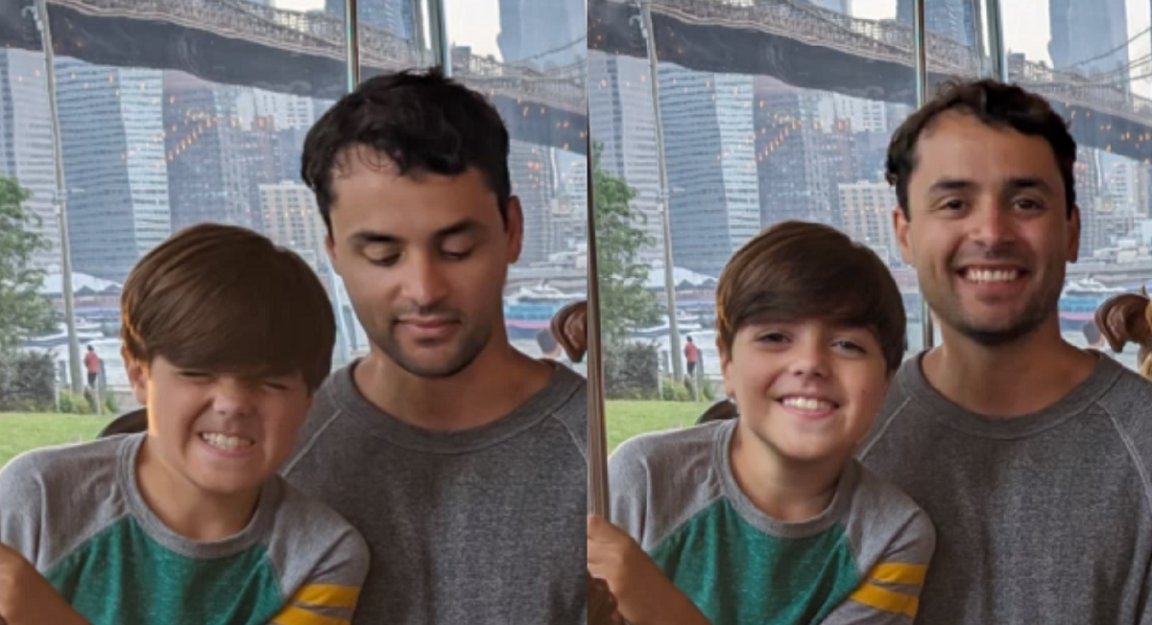
Show Those Chompers
Google is releasing a new AI-powered photo editing feature that will allow users to go back and force all sorts of facial expressions onto people in their pictures.
Now, everyone in the unflattering group photo — regardless of how enthused they were about being having their picture taken at the time — can be made to beam with an algorithm’s idea of a human smile.
Called “Best Take,” the feature comes equipped in Google’s new Pixel 8 Smartphone, which was released this week and retails for $699. It has one notable caveat, or perhaps saving grace: Best Take only uses faces grabbed from other similar photos taken in quick succession. So it can’t, Google claims, just swap and generate any face from any point in time, nor can it generate them from scratch.
For example, if in one take you caught your friend blinking, but in another their eyes are open, Google’s tool can swap their faces into the best take — or at least the one you look the best in.
Take it a few steps further and voilà: you can have everyone’s eyes wide open, smiles corrected, and tongues prudently withdrawn.
Hellish Happiness
Does that sound convenient? Yeah, if you can stomach it. It’s basically what people have been doing with Photoshop for years, except automated. Parents will probably love it. No longer will kids be looking the other way in a candid photo or grimace in the family Christmas postcard.
But Best Take’s implications are disquieting. It feels that using this technology doesn’t help actually capture memories.
Instead, it optimizes them — for Instagram, for Facebook, or just personal posterity — in a way that is effortlessly manipulative. It goes beyond being a gaudy photo filter to something much more insidious and lifelike.
“It’s allowing AI to help standardize ideas about what happiness looks like,” wrote tech columnist Geoffrey A. Fowler in The Washington Post.
Face Off
Google sees it differently. Since Best Take only uses faces from photos taken in the same burst, the images it produces aren’t fake, per se.
“At a high level the main goal is to capture the moment the user thought they captured,” a Google product manager told the WaPo.
Who’s to say, though, that these precarious, self-imposed limitations will stay in place forever as other tech companies and phone makers all try to one-up Best Take?
We’ve already seen how destructive AI tampering with images can be. Disinformation, misinformation, racist beauty standards — it’s a hell of a Pandora’s box.
But sadly, it seems that ship has long sailed. Chances are, your phone camera automatically pretties up your photos and your face with you knowing. With the boom in everything AI in recent years, this was the inevitable next step.
More on AI: Google Insider Unimpressed by Its Cutting Edge AI